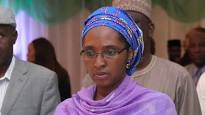Stakeholders in the nation’s water, sanitation and hygiene space on Tuesday canvassed the need for the Federal Government to reduce taxes on of sanitary pads and other items being used by women to promote menstrual health in the country.
The stakeholders, under the aegis of the Water Supply and Sanitation Collaborative Council (WSSCC) on Tuesday at their ongoing Training of Trainers Workshop on Menstrual Hygiene Management (MHM) in Makurdi, Benue State, noted that the current taxes on the menstrual sanitary items were making it difficult for many girls and women to make use of them during their menstruation.
Speaking at the forum, the Technical Expert on Menstrual Hygiene Management (MHM) of the Council, Dr. Virginia Kamowa, pointed out that poor access to sanitary materials, potable water and sanitation constituted a leading cause of loss of dignity for women and girls.
Citing Tanzania, Kenya, Canada, and South Africa among some countries that had reduced sanitary items taxes, she explained that in the United Kingdom (UK), government had made it compulsory for menstruation education to be taught as a subject in schools.
According to her, this had helped the countries to make policies that encouraged inclusion and improved the lives of women and girls.
She said: “A number of countries have started to develop programmes and integrate menstrual hygiene management in their policies including removing taxes for sanitary materials that women use when they are menstruating.
“Recently, the UN Council on Human Rights passed a resolution urging all countries to take decisive action to ensure that women and girls have universal access to information on menstrual products and facilities that are needed for improved menstrual hygiene.
“So, it is important that Nigeria removes such barriers such as taxes so that women and girls will live better and more productive lives”, the medical expert added.
Kamowa said that the council had already realised that lack of adequate WASH services and MHM made it impossible for many girls from going to school and several women from going to work, especially in informal work settings.
This is even as she pointed out that some health care facilities which lacked WASH services to manage girls and women menstruation had worsened the problem, saying that since Nigeria is a signatory to the SDGs, access to WASH should be prioritised governments at all levels.
While promising the commitment of the WSSCC to continue to provide technical support to changing the narratives of poor WASH services, she urged the various tiers of government to consolidate the efforts being made to scale up sanitation and hygiene in the country.
In her comments, an official of the Federal Ministry of Women Affairs, Mrs Christiana Oliko, noted that women and girls living in rural areas faced restricted access or no information to services about their reproductive health and rights.
She identified some of the barriers being faced by the girls and women as including discrimination, stigma, restrictive laws and policies entrenched in traditions.
Oliko maintained that the onset of menstruation provided an opportunity to not only teach young girls about changes occurring in their bodies but also about fertility, pointing out that poor access to WASH also affects negatively school participation.
She explained: “Schools may also not have safe, clean or private toilets where girls can manage their periods, sometimes they are scared that classmates will notice they are menstruating and laugh at them.
“You will agree with me that menstrual hygiene management is key to healthy, productive and dignified lives for women and girls.’’
Earlier in her remarks, the representative of the Ministry of Water Resources, Mrs. Ayaba Kogbara, said that the inauguration of the Partnership for Expanded Water, Sanitation and Hygiene (WASH) by the ministry was amongst other initiatives to scale up WASH in the country.






